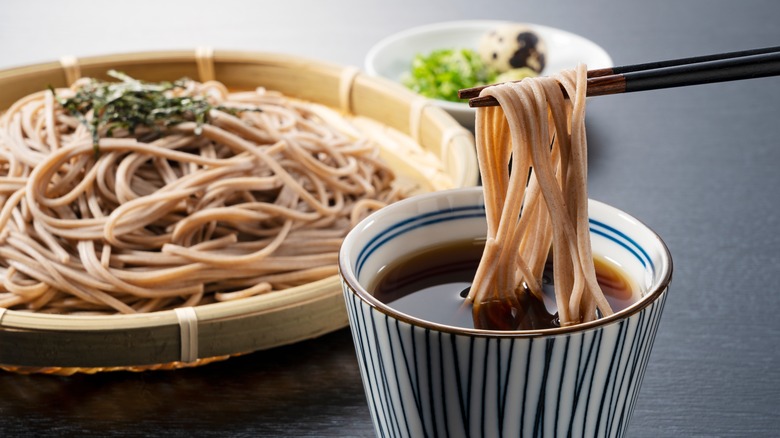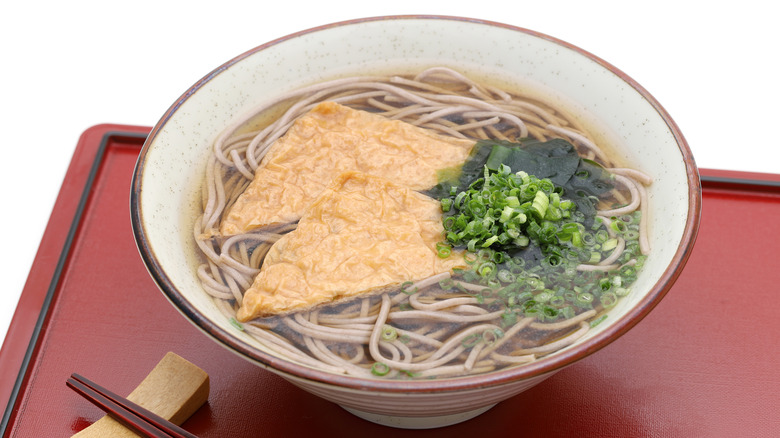The Japanese NYE Tradition Of Eating Soba Noodles At Midnight
Pop the champagne because it's finally the holiday season and New Year's Eve parties are right around the corner. Here in the U.S., typical celebrations on the last night of the year involve fireworks, watching the ball drop in New York City's Times Square, midnight kisses, and lots and lots of sparkles. But venture beyond American borders and you'll find a wide variety of traditions ingrained in this holiday around the globe.
In Japan, New Year's Eve generally includes eating buckwheat soba noodles, also called toshikoshi soba. Japanese people don't just enjoy this dish because it makes for a tasty holiday main course — eating soba noodles has layers of symbolism mixed in. The strong buckwheat plant indicates resiliency and the noodles' thinness means they can be easily bitten, illustrating a clean break from the previous year's challenges. Soba noodles are also preferred over other types on New Year's, like udon, because their long length symbolizes a long life. And for a few different reasons, eating this dish to start the new year is also thought to bring prosperity. Back in the day in Japan, goldsmiths used soba flour to gather their precious metal, so consuming the flour in noodle form nowadays can mean that gold is coming in the new year. Some households even top their dish with salted herring (called nishin), whose abundance of eggs is believed to foreshadow wealth.
Long noodles for a long life
So what is in this slurpable New Year's dish? Soba noodles are made mostly from buckwheat flour and are usually eaten cold with a dipping sauce called tsuyu, or hot in a soup. The Japanese aren't picky about how these noodles are consumed on New Year's, whether hot or cold. But to add a little pizazz (it is a holiday, after all), the dish is often finished off with a raw egg, fish cakes, or tempura — and high-quality buckwheat flour and water are crucial ingredients to make a tasty base.
Although eating this dish on New Year's Eve is common in Japan today, soba noodles themselves are an ancient Japanese food dating all the way back to the Middle Ages, and are rooted in Zen Buddhist customs. "Soba is a powerful, high-vibration food," Japanese soba restaurant owner Ariko Ianoka told 50 Best Stories. "Before going into deep meditations and long fasts, Zen Buddhist monks used to eat buckwheat flour and water mixed into a ball." During the Edo Period, which began in the 1600s, enjoying soba noodles on the last night of the year was firmly established as a Japanese tradition that has carried all the way into the modern day.

